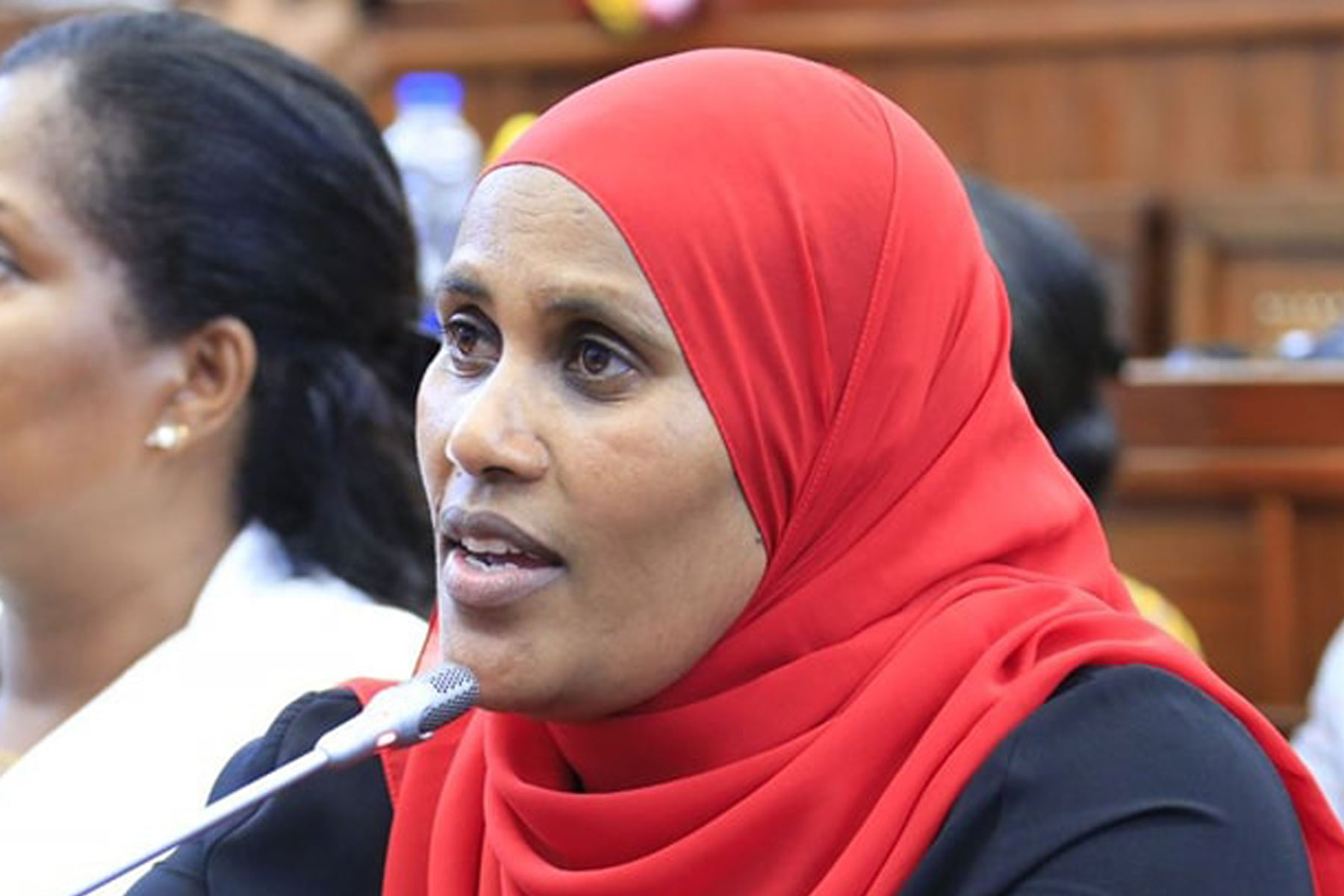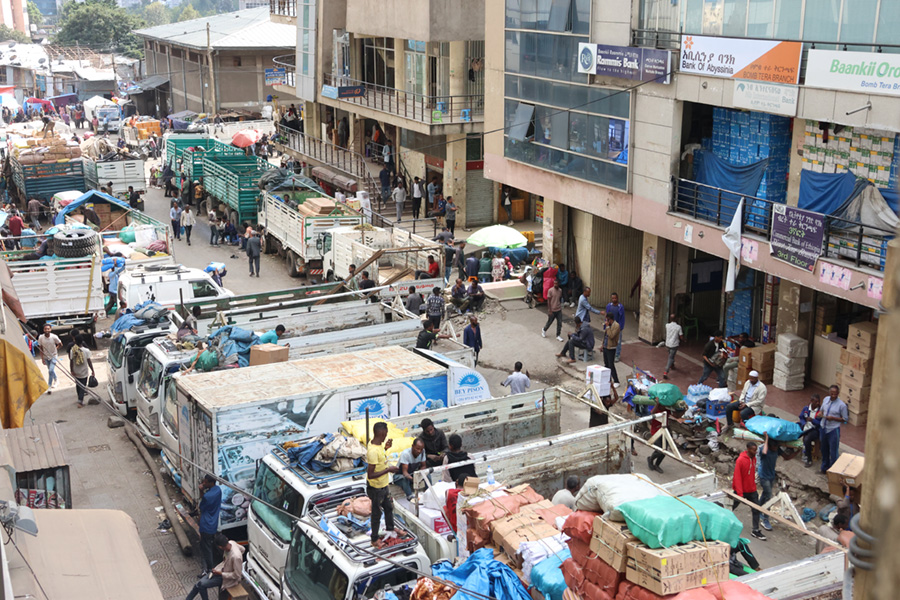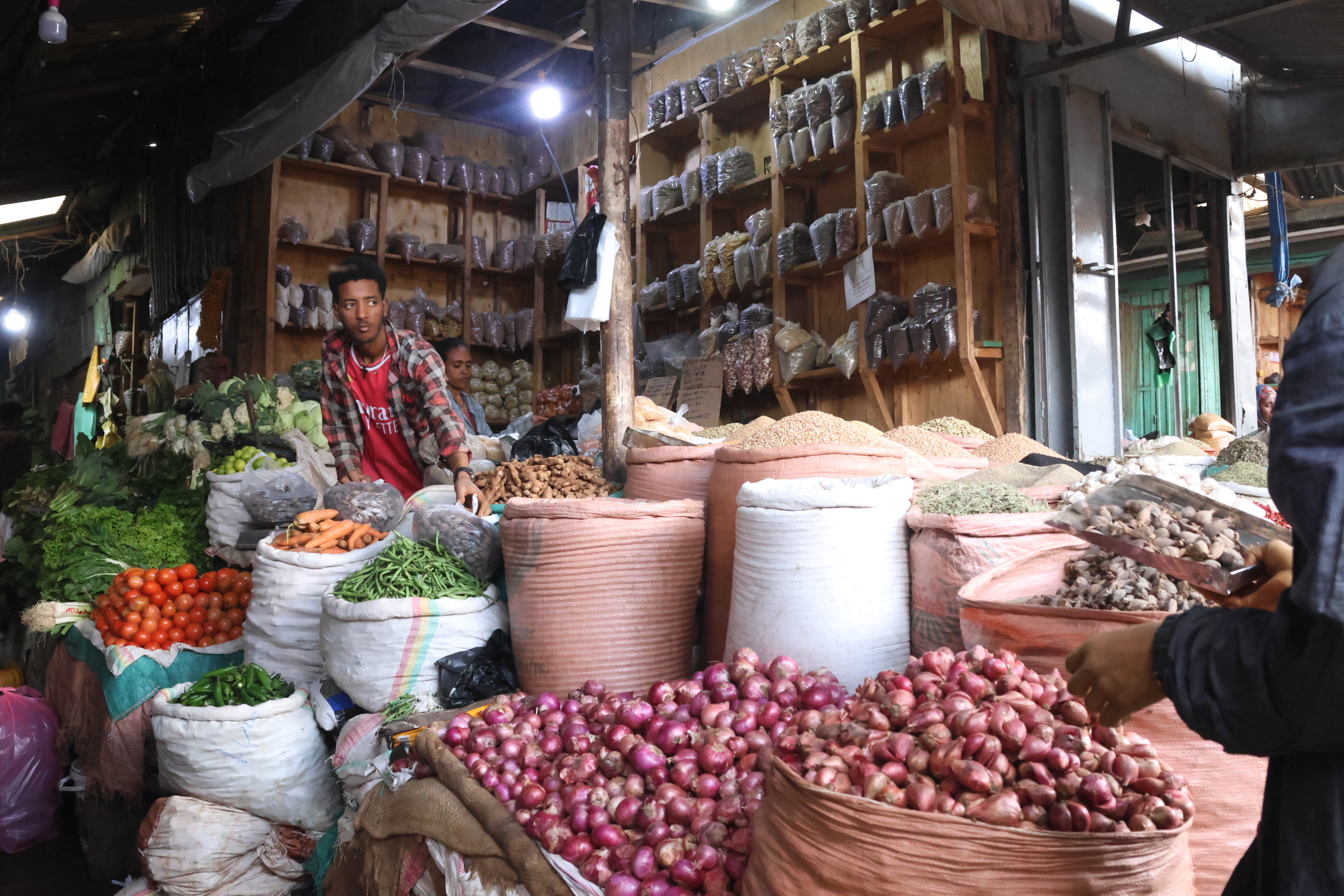
Meat exporters are eagerly awaiting the implementation of a binding agreement with livestock suppliers, hoping to compete in global markets efficiently. This comes in response to exporters' requests for regulatory oversight, prompting the Livestock Development Institute officials to pen the directive three months ago.
The bill which removes intermediaries from the market chain and creates industry linkage between the two actors, is expected to shorten supply chains and address issues such as high prices cited for the lackluster export performance.
There is a potential to supply 200,000tn meat provided that abattoirs utilise full capacity. However, beef exports deemed as no longer lucrative were removed from the portfolio a year ago while goats make up around 95pc of the meat exports.
Ethiopia garnered nearly 78 million dollars in revenues from shipping 10,645tn of goats and sheep meat last year: mainly to the United Arab Emirates and Saudi Arabia markets. The previous year's performance was relatively better at 17,205tn of meat exports earning 104.3 million dollars.
According to Gezahegn Dugassa, head of the value chain and promotion at the Institute, there are several middlemen in the current livestock supply chain, ranging from cattle husbandry to export abattoirs.
Their role, he believes, is not essential apart from imposing additional prices and narrowing the margin of the exporters.
"A mutual decision of exporters and suppliers will be the benchmark to set the prices," he said.
Although Ethiopia boasts the largest livestock population, with nearly 70 million cattle, 40 million sheep and 50 million goats, there are only 11 meat processors and exporters in the country.
The 33-year-old Ethiopian Meat Exporter & Producers Association applauds the move indicating its role in stabilising the market price which seems to have been a major impediment to exporters to compete in the international market.
Secretary-General, Abebaw Mekonnen said discussion with officials from the Ministry of Agriculture is pending while they prepare for additional inputs.
"We long for a swift process," he said.
Once the bill gets approval from Minister Girma Amentie (PhD), a task force comprised of representatives from the Ministry, Agriculture Authority and Ministry of Trade & Regional Integration will be formed to oversee how they go about it. Meanwhile, a bill to regulate the supply chain logistics and infrastructure of the largely informal livestock sector is prepared by the Ministry of Trade & Regional Integration.
Shimelis Araya (PhD), an agricultural economist believes that previous industrialisation-led policies that ignored the sector are a culprit for the exorbitant prices and unpredictable livestock market.
"We are reaping what we sow," said Shimelis.
He urges that the essentiality of the livestock policy is to identify what budget to be allotted precisely and to support the farmers through technologies for the revival of livestock and meat export.
While policy overhauls recommended by experts await stakeholder discussion and approval, major exporters such as Frigorifico Boran Foods Plc which claims a 40pc market share are contemplating shutting down operations.
A subsidiary of Allana Group, the meat processing company came into the Ethiopian market eight years ago. The company receives a kilogram of meat for 480 Br from suppliers and exports for seven dollars.
Director Of Operations Kelifa Hussien stated the wide gap between production cost and profit margin has led the company to incur a loss while the other plant in Mojo town with a capacity to slaughter 3,000 sheep and goats per day is on the verge of going out of business.
The plant located at Adami Tulu town 168Km from the capital has been on-and-off operation since 2020 citing security issues and inconsistent supply as predicaments and ceased operation four months ago.
While the foreign company which used to amass profits of up to 40 million dollars in a good year stands at the brink of crisis, its operational director has one last trick up in his sleeve to compensate for the loss despite policy hurdles.
"We're asking for import privileges," he said.
Local exporters concur that the presence of intermediaries with no additional value has made the market price unattainable.
Located in Bishoftu (Debre Zeit) town, 47Km away from Addis Abeba, Abyssinia Export Abattoir was established with an initial capital of 70 million Br a decade ago. The 15,000sqm slaughterhouse facility exports a kilogram of goat and sheep meat for seven dollars, which is the minimum threshold set by the central bank.
Although the slaughterhouse facility has the capacity to process 60tn of meat daily, the company manages to utilise half of that each month.
The major shareholder, Tewodros Tadesse observed the long chain from buying livestock to the final export destination has made the final price higher when competing in the international market, making neighbouring countries such as Kenya preferable.
"It's discouraging," he said.
He recommends that pastoralists form unions to directly supply exporters and become the primary beneficiaries. However, this suggestion can be challenging for pastoralists with limited networks who are concerned about finding customers.
From Yabelo Wereda, Borena Zone, Gofari Kuri, 34, makes ends meet by selling his sheep herd to intermediaries.
Two months ago, he sold 200 sheep each for a price range between 7,000-12,000 Br. The rise in animal feed prices is what drives up the cattle market, according to Gofari.
Although he is aware that trade without intermediaries entails about 1,000 Br more profit, he is not confident with his networking ability to reach buyers living far from the urban population.
"I prefer quick transactions," said Gofari. "And use the money to sustain the remaining cattle."
PUBLISHED ON
Oct 07,2023 [ VOL
24 , NO
1223]

Radar | Feb 19,2022

Radar | Oct 09,2021

Radar | May 07,2022

Fortune News | May 11,2024

Radar | Sep 18,2021

Fineline | Nov 21,2018

Agenda | Nov 24,2024

Agenda | Apr 19,2025

Fortune News | Jun 08,2025

Fortune News | May 13,2023

Dec 22 , 2024 . By TIZITA SHEWAFERAW
Charged with transforming colossal state-owned enterprises into modern and competitiv...

Aug 18 , 2024 . By AKSAH ITALO
Although predictable Yonas Zerihun's job in the ride-hailing service is not immune to...

Jul 28 , 2024 . By TIZITA SHEWAFERAW
Unhabitual, perhaps too many, Samuel Gebreyohannes, 38, used to occasionally enjoy a couple of beers at breakfast. However, he recently swit...

Jul 13 , 2024 . By AKSAH ITALO
Investors who rely on tractors, trucks, and field vehicles for commuting, transporting commodities, and f...

Jun 28 , 2025
Meseret Damtie, the assertive auditor general, has never been shy about naming names...

Jun 21 , 2025
A well-worn adage says, “Budget is not destiny, but it is direction.” Examining t...

Jun 14 , 2025
Yet again, the Horn of Africa is bracing for trouble. A region already frayed by wars...

Jun 7 , 2025
Few promises shine brighter in Addis Abeba than the pledge of a roof for every family...